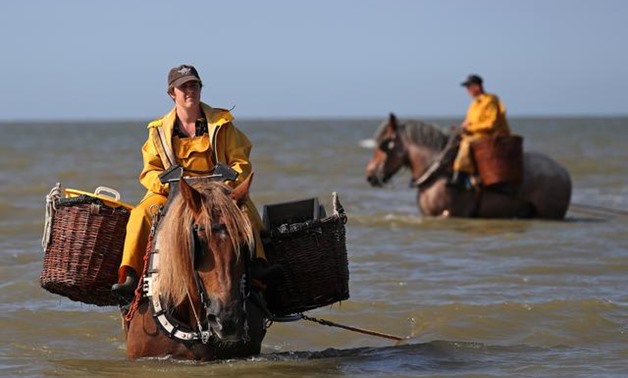
Belgian shrimp fishermen ride their horses in the sea in the coastal town of Oostduinkerke, Belgium July 29, 2019. REUTERS/Yves Herman
BRUSSELS (Reuters) - In the small western Belgian fishing village of Oostduinkerke, fishermen use horses, rather than boats, to go shrimp fishing — one of the very few places in the world still using a technique dating back to the 15th century.
The method makes use of the horse’s strength to pull a fishing net through the shallow waters of Oostduinkerke, a natural habitat to grey shrimp (Crangon crangon), just before and after low tide.
While centuries ago it was also used in northern France, the Netherlands and the south of England, now only 15 Belgian fisherman in the village use the UNESCO-recognized method several times a week, drawing tourists from all over the world.
The fishermen say, however, that each year they pull more and more plastic waste out of the water.
“We see that the population of shrimps is going down every year. We catch a lot of plastic these days. Little plastic pieces, wraps, bottles are common things to see in the net,” said Katrien Terryn, whose boyfriend Dominique Vandendriessche has fished for 20 years.
“I think we are at the point where the pollution and plastic in the ocean will become a bigger problem. We will see the consequences more and more in upcoming years.”
Fishermen separate shrimps at the beach by hand and take out only the big shrimps, returning the smaller ones to the sea.

Comments
Leave a Comment